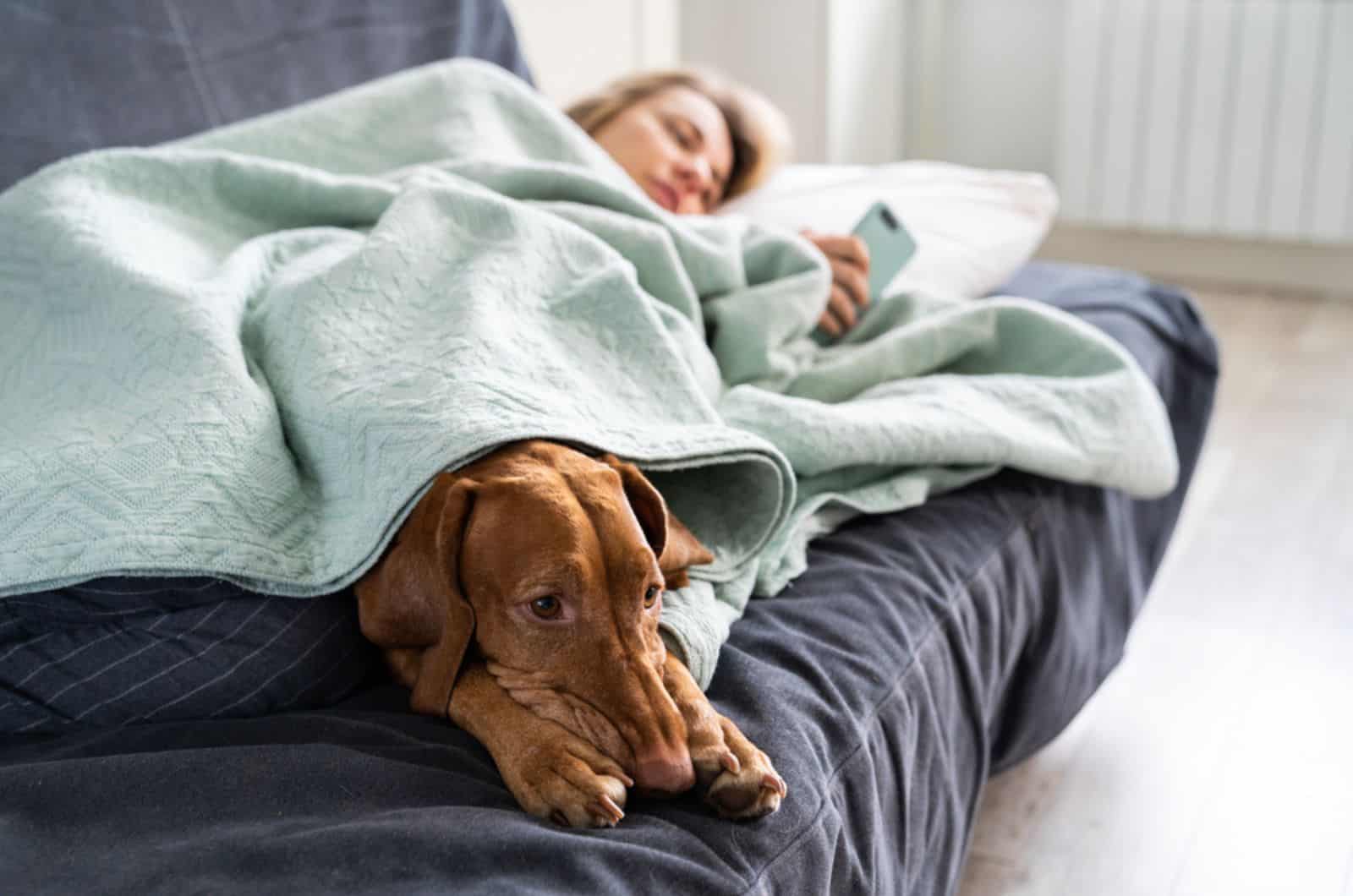Despite what some may believe, dogs are very empathetic creatures and they respond to the way their owners feel, but are dogs also affected by their owner’s moods?
They sure are. The very atmosphere that surrounds an individual can influence the overall mood of the room for anyone in it, dogs included.
It isn’t even that complex of a science. Dog’s aren’t simple creatures. They too share complex emotions that respond to the behaviors of others around them, not just their owners in particular.
If you’re happy or in an overall positive mood, or just engaging in some high-energy activity, you may end up brightening your own pooch’s life and have him join you.
On the other hand, if you’re feeling sad or upset, your doggo will sense that and will try to comfort you, feeling worried about your current emotional state.
And, of course, if you’re lashing out or being angry, you may end up spooking your own pet and have him run away to safety temporarily.
What we do does influence those around us, our dogs in particular, but how it influences our dogs and how much we’re about to find out.
How Can Dogs Tell Our Emotional State?
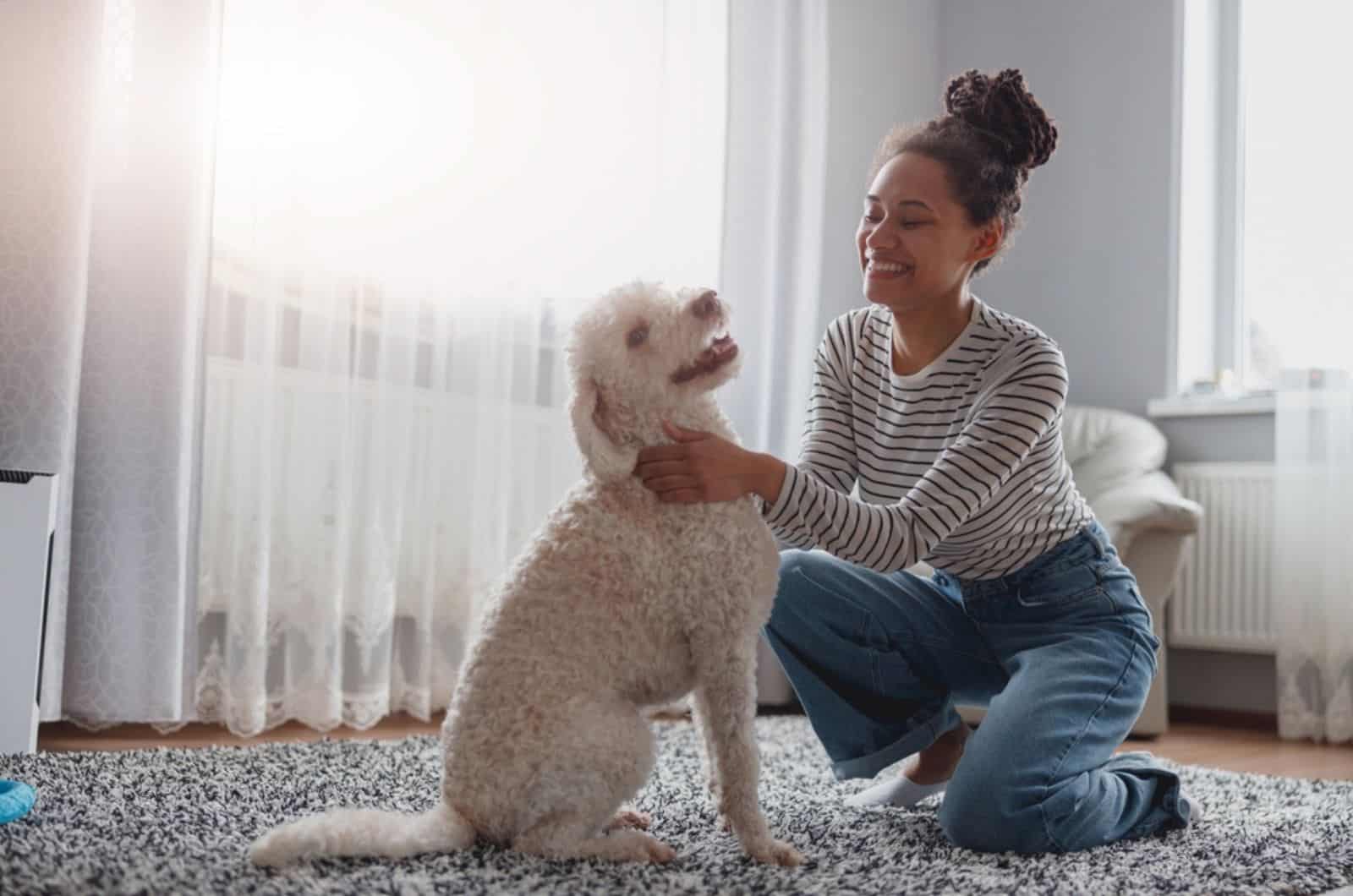
Dogs are intelligent animals and they have an easier time discerning your emotional state than most other animals do from visuals alone.
However, their strength in emotional detection doesn’t come from their eyes, but their nose.
It may sound strange, but certain moods will make the body produce certain hormonal mixes.
Mixes which produce a particular scent, and a dog’s olfactory senses are anywhere from 1000 to 10000 better than that of humans.
This makes it a lot easier for your canine companion to pick up on these particular hormones, deduce what emotional state they belong to, and to react accordingly.
There has been plenty of research[1] regarding the influence of owner moods on their dog’s behavior.
The foremost conclusion from most of them is that dogs who are more closely tied to their owners seem to exhibit a bigger response in terms of emotional variability than those who are more independent.
This applies to both positive and negative merits of such an interaction, so it’s up to the owner himself whether this is a beneficial or detrimental aspect of the dog’s life.
Do Dogs Reflect Their Owner’s Moods?
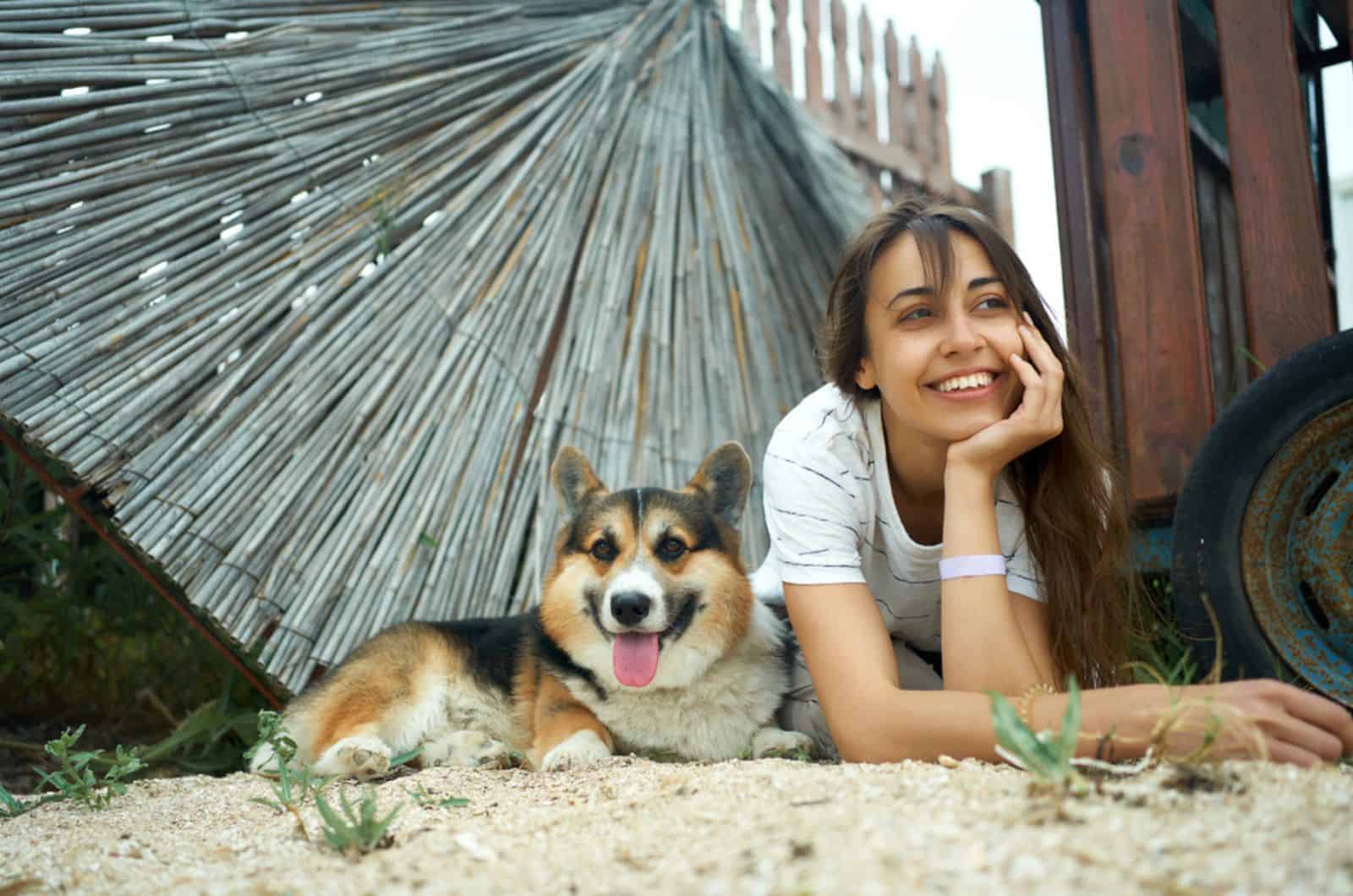
Yes, but only in the long term. This is particularly noticeable in stronger personality types.
Some of the most influential ones are:
- Conscientious people – those who like doing things perfectly and having a strong semblance of organization with everything in their life having an order to things
- Neurotics – anxious people whose depressive bouts can be infectious, often to the detriment of the dog people often recommend as a cure for said condition
- Extroverts – highly energetic people in particular who wish to engage in all sorts of different activities, most of which the dog will engage in too
- Empathetic and kind individuals – people who will be mindful of their dog’s mood and that of other people, and will often go out of their way to try and improve it.
There are plenty of others, but these are some of the more prevalent ones, particularly in modern society.
How Do Owners With These Personality Types Affect Their Dog’s Moods?

1. The Extroverts
Starting off with the positives, the high energy extroverts are a favorite among groups, pets too.
This is particularly true for the more physically active dog breeds like the Belgian Malinois, German Shepherd, etc.
That said, most dogs are somewhat extroverted and this personality type fits their agendas well, mostly because it means they get to be outside a lot more.
The extrovert’s overall personality will, in time, make the dog more outgoing and more receptive to trying new things.
That’s why extroverted pet parents will often see their dogs trying to engage in some new and high energy activities that they’re trying out (within reason, of course).
This, oftentimes, means they’ll end up being healthier.
2. The Empaths
Next up are the empathetic people. These owners are often the best choices when raising emotional support animals.
They’ll transfer some of their own traits over to these animals through their high levels of care and attention to others.
Their kindness will mellow out otherwise unruly dogs and will make dogs more receptive to giving people the same kind of care that they receive.
An empath owner often means their relationship with the dog is symbiotic in terms of emotional support as they help lift one another up to overcome whatever ails them at the time.
3. The Conscientious People
The first of the two mentioned negatives. While an organized person may seem like they’d be a positive influence on a dog, it turns out that that isn’t exactly the case.
Dogs love their freedom and conscientious people are fans of order where said freedom brings, in their mind, unnecessary chaos which they’ll try to tame.
They’re usually inflexible to change and very protective of their way of functioning which can translate to some semblance of territorial behavior.
The same territorial behavior that the dog is likely to inherit over time which can lead to more stressful and aggressive behavior in the pooch himself.
This isn’t just a passive acquisition either as the aforementioned spontaneity of the dog will upset the conscientious owner.
When their dogs pick up on it, it’ll make them feel like they’re doing something wrong.
This also makes the dog more likely to withdraw from more open interaction with strangers and other dogs in fear of making them react in the same way.
4. The Neurotics
Finally, we have the neurotics, the subtle and unintentional influencers of their dog’s mood.
These people are often victims of long term stress or deep-seated anxiety, people who obsess over something a little bit too much, but not to a point where they’re a menace to society.
These are often the people to whom getting a dog is most often recommended, yet they are likely the worst type of person to be a pet parent if the neuroticism is too prevalent.
They won’t have the gumption to be firm with a dog which will make training difficult and will often let them get away with too much.
But, even if they do get a properly trained dog, their generally depressive and anxious outlook will rub off on their pets, which will affect said pet negatively.
This is especially true for empathetic dog breeds.
They’ll start mirroring their owner’s behavior and start becoming more stressed and anxious themselves.[2]
The gradual buildup of stress will make dogs less likely to want to go out and meet new people as they may perceive it as an additional source of stress, something that they want to avoid.
Such mirroring was evident in a number of cases where the dogs with dog owners who were diagnosed with neuroticism showed increased levels of cortisol in their blood.
Is It Really That Bad?
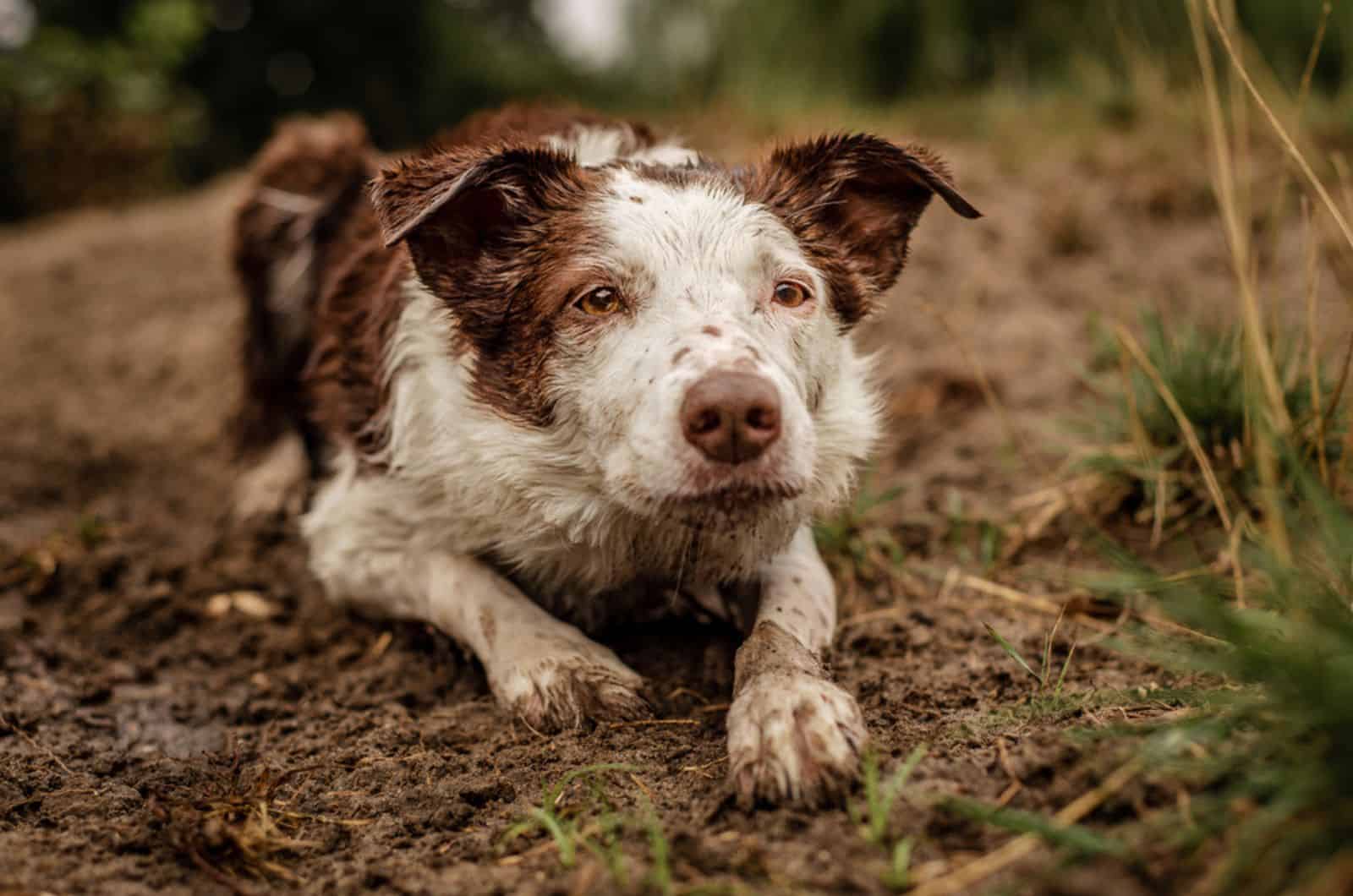
It is, but only if your personality type leans into one of the negative ones in an extreme manner, but not a lot of humans are defined by one singular trait.
We’re multifaceted, and there’s often a good mix of both positives and negatives in there that’ll help even out the bad with the good.
Does This Relation Go Both Ways?
No, it doesn’t.
Dog behavior isn’t as relevant as the owner’s perception of the owner-pet relationship which has a bigger impact on the overall dynamic than the actual responsiveness of the dog in question.
You as the owner pull most, if not all of the strings which is why it falls on you to make the best of it.
What’s The Ideal Pet Parent Personality?
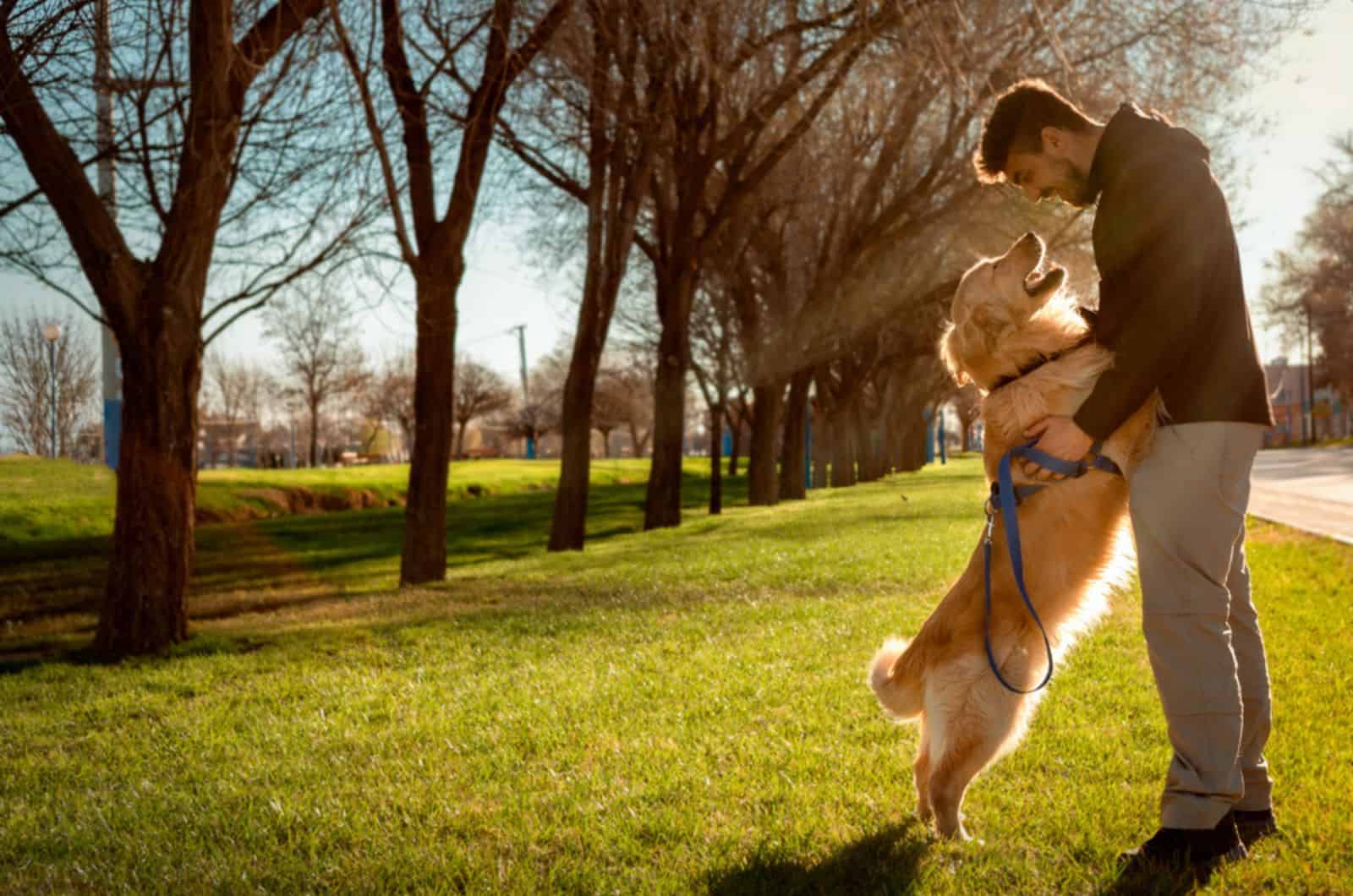
Ideally, the best fit for a dog would be someone who’s spontaneous and extroverted.
A person who is open to change and enjoys going out as these are traits that most dogs possess already and value greatly.
There will be very little change toward the negative if any, and, in most cases, the dog’s behavior will improve as both pet and owner resonate with one another from the get go.
This also makes it more likely to help the dog get rid of some of his own negative traits that he may have earned from prior trauma, which is going to be a net positive for both parties.
But, I do want to point out that different personality types do resonate differently with each dog as they’re as unique as we are from one individual to another.
There are dogs who prefer more introverted and calm owner types too, you just have to pick the right one.
While extroversion and agreeability may be the ideal, not every human can achieve this.
The best piece of advice that I can give you is to try and not project your less desirable personality traits on your relationship with your dog.
And, finally, work on these negatives so that they’re not a major part of your personality. It’ll improve both your and your dog’s overall quality of life.
In Conclusion
Dogs definitely are affected by their owner’s moods, for better or worse, but what’s important is to make sure said influence is more positive than negative.
Our pets are often mirrors of the ways we approach relationships and can be a good indicator of what we’re like as a person to others.
Those that we classify as “bad people” will often have more aggressive and uncontrollable dogs.
Meanwhile, the more sociable folk are more likely to have calmer and friendlier dogs who are eager to meet new acquaintances.
Some pets and owners simply make a bad match as well and their personalities end up clashing.
But, since the owner is a major part of that relationship, he takes the reins and the change is forced on the pooch.
It’s vital to remember that dogs are living beings too and that they require a certain degree of care, attention and responsibility to handle.
There are people out there who simply aren’t meant to own a dog with the way they are now as, in a majority of cases, the dog in question will end up worse for it rather than the owner’s problems improving.
I’m not trying to dissuade you from getting a pet, but think of him like you have a child roaming around your premises.
Think about whether or not you can provide for him and whether or not you’re a suitable enough match to be a caretaker of such a vulnerable individual before getting a dog.
If you find that you may not be able to fulfill these requirements, then it’s best to hold off a bit until you’re in a better position to do so.
It’ll make your life, and the life of your future pet that much better. Until next time, pet parents.
READ NEXT: 6 Most Obvious German Shepherd Anxiety Symptoms
References:
[1] Sanni S., Heini T., Aija K., Antti V., Katriina T., Heli V., Veikko S., Outi V., Miiamaaria V. K. (May, 2022.), Dog–Owner Relationship, Owner Interpretations and Dog Personality Are Connected with the Emotional Reactivity of Dogs, DOI
[2] Amanda H., Enya Van P., Rebecca K., Per J., Elvar T., Lina S. V. R. (April, 2021.), Long-term stress in dogs is related to the human–dog relationship and personality traits, DOI
